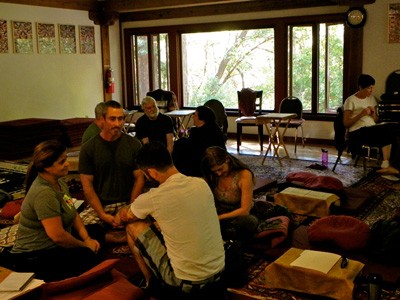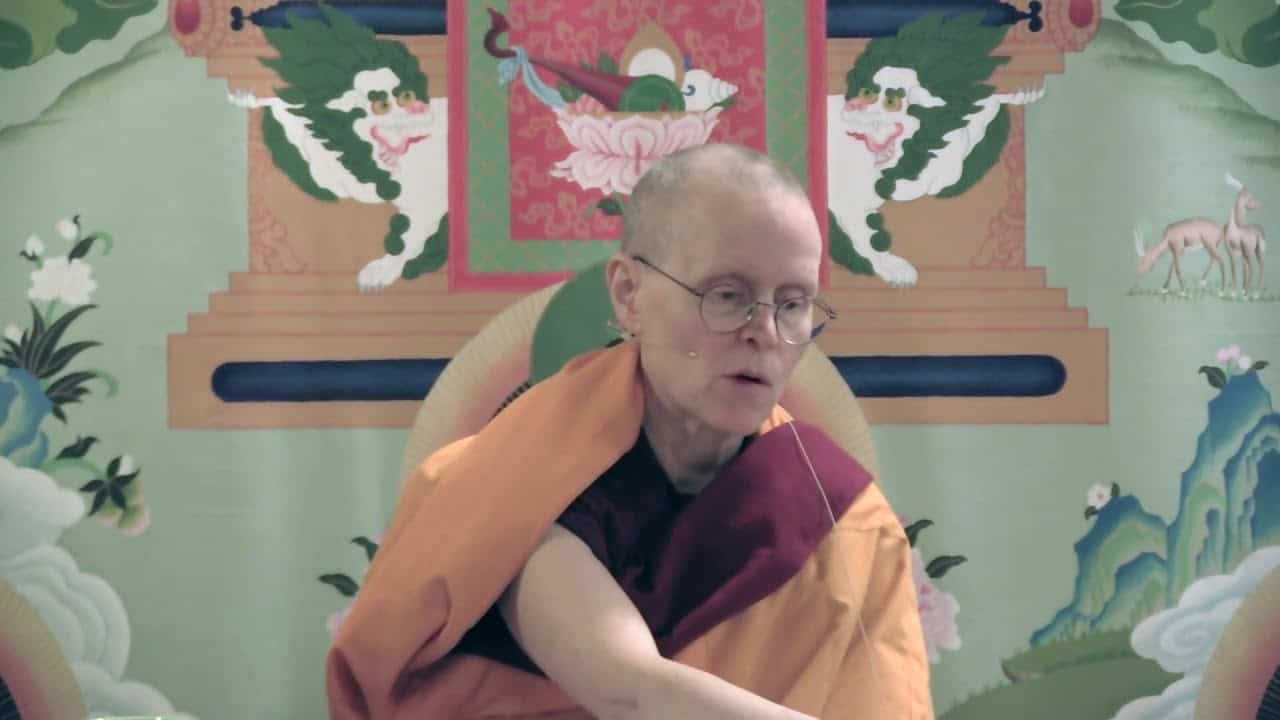Refuge and precept discussion questions

In addition to the readings in the Refuge Resource Book, the following questions will support thoughtful contemplation as one prepares to take or renew refuge and precepts. These questions are valuable for those studying on their own as well as those meeting in refuge discussion groups.
Refuge Discussion Topics
- Are there certain things in cyclic existence that you take refuge in, such as people, material possessions, social status, praise? What is the effect of relying on them for lasting happiness and freedom from suffering?
- What are your reasons for taking refuge? How do you think taking refuge in the Three Jewels will benefit you and those around you?
- What qualities of the Buddha, Dharma and Sangha make them reliable objects of refuge?
- How will taking refuge and keeping any/all of the lay precepts impact your life?
- What habits or activities will you have to change to keep the precepts?
- How will taking refuge and living according to the precepts contribute to the quality of your life?
- How will they prepare you for death?
- In your own experience, what has deepened your understanding and faith in the Buddha? The Dharma? And the Sangha?
- What are the causes for taking refuge? To what extent have you cultivated these in your life so far? How can you cultivate these even further?
- Why is the Dharma considered our actual refuge?
- How can we evaluate or gauge the extent to which we have taken refuge in our lives?
Precepts Discussion Topics
The first precept: Refrain from killing
- Do you consider some types of intentional killing acceptable and feel okay about doing them? Killing bugs or mice? Euthanasia of pets? Abortion? Assisted suicide?
- How else could you approach the above situations so that you can avoid killing?
- Make examples of killing from your own life experience done with each motivation: anger, attachment and ignorance.
- What are some of the benefits you would experience by refraining from any killing any living being, even the smallest insect?
The second precept: Refrain from stealing or taking what is not freely given
- When you think of taking things that are not freely given, what do you consider acceptable? Do you notice a feeling of entitlement with certain things like making personal phone calls or photocopies at your workplace, downloading pirated music or movies, not paying taxes, etc. Make examples from your own life. Do you borrow things or money and not return them (Library books? Loans from friends? Other possessions?)
- Do you want to continue such actions? How can you change that behavior?
- What are some benefits you will experience by refraining from taking what is not freely given by others?
The third precept: Refraining from unwise and unkind sexual activity
- When we’re involved in unwise sexual behavior, we’re imagining attaining some pleasure for ourselves. What are some of the inevitable, unintended consequences of engaging in unwise sexual behavior?
- Make examples of some of the ways that holding the precept to refrain from unwise and unkind sexual behavior protects you.
- List some of the benefits for you and those close to you i.e. family, community, from your refraining from unwise and unkind sexual behavior.
The fourth precept: Refraining from lying
- Make examples of some of the small, medium and big lies you’ve told in your life. Did they bring the result you wanted, or did they lead to more problems?
- What kind of lies do you think are okay to tell in life? What is your motivation for telling these lies? Is lying in these circumstances really necessary? And where do you draw the line on lying?
- Do you get confused when you lie? For example, you can’t remember what you told to whom? What happens when people figure out that you have lied to them?
- What are some of the benefits you will experience from completely refraining from lying?
The fifth precept: Refraining from intoxicants (Alcohol, drugs, tobacco, and misuse of prescription drugs)
- Do a life review of your use of intoxicants—alcohol, recreational drugs, tobacco, and abuse of prescription drugs. What was your motivation for using these? What were the results of using them for yourself and for others?
- What would be most challenging for you about refraining?
- What kind of situations are you likely to find yourself in when it could be challenging to keep this precept? What ideas do you have for avoiding such situations or dealing with the challenges you face in them?
- We think that alcohol and/or drugs will be fun and will bring us happiness. Discuss some of the unintended consequences of drug and alcohol use.
Venerable Thubten Chodron
Venerable Chodron emphasizes the practical application of Buddha’s teachings in our daily lives and is especially skilled at explaining them in ways easily understood and practiced by Westerners. She is well known for her warm, humorous, and lucid teachings. She was ordained as a Buddhist nun in 1977 by Kyabje Ling Rinpoche in Dharamsala, India, and in 1986 she received bhikshuni (full) ordination in Taiwan. Read her full bio.


